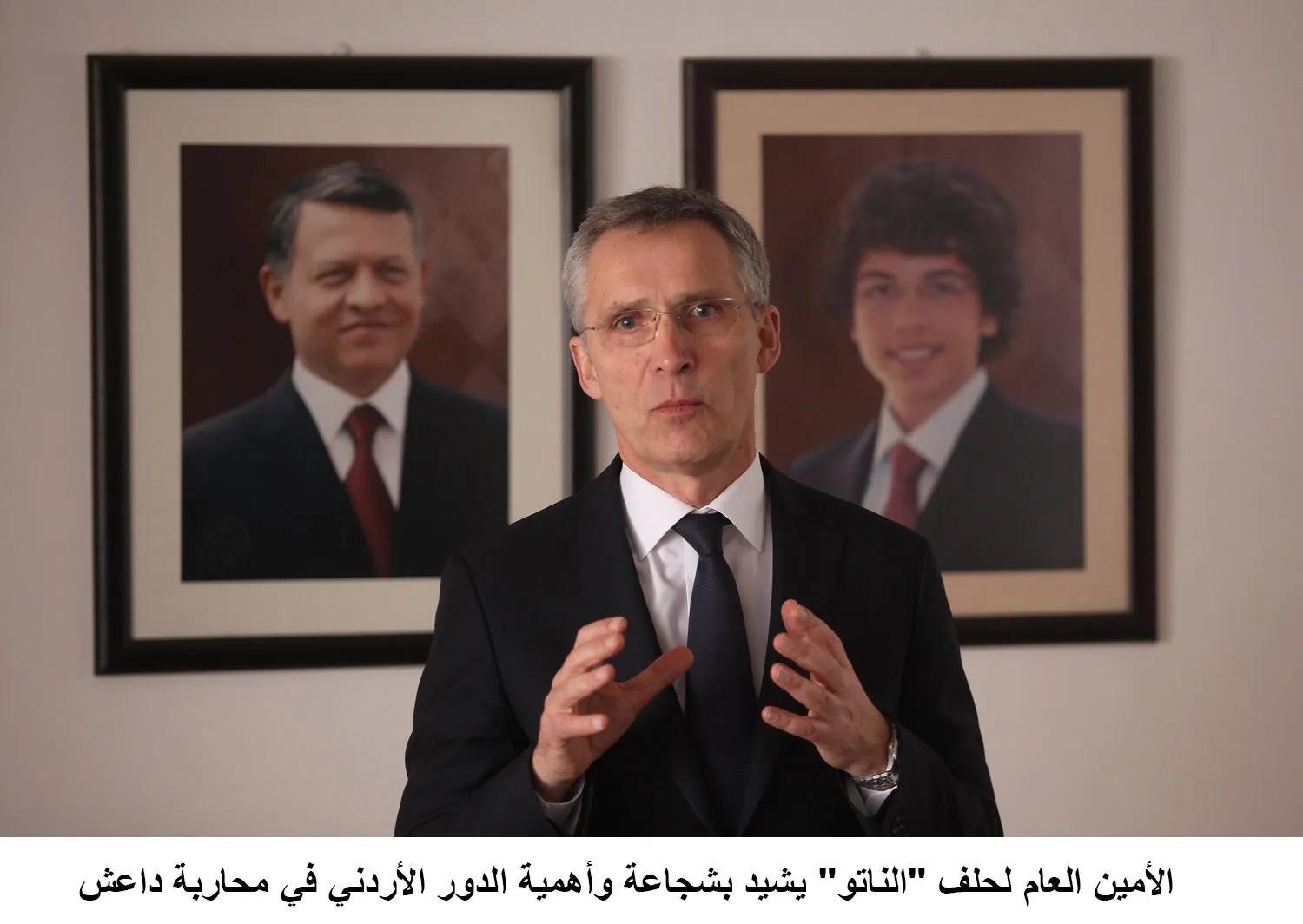NATO Secretary General Jens Stoltenberg underlined the need to continue fighting ISIS at the political and intellectual levels following its military defeat.
In a joint news conference with Jordanian Foreign Minister Ayman Safadi in Amman, Stoltenberg said: “We need to continue our fight against the terrorist group at the political and intellectual levels,” praising Jordan’s role in fighting terrorism and extremism at the regional and international levels.
Jordan’s King Abdullah II discussed with Stoltenberg in Amman the efforts to fight terrorism and cooperate in the military and training fields, according to a statement by the Royal Court.
The meeting focused on “the importance of strengthening cooperation between Jordan and NATO in the military and training fields and efforts to combat terrorism, which threatens global security and peace,” the statement added, highlighting the Arab country’s keenness to strengthen its partnership with the organization.
For his part, Stoltenberg expressed appreciation for the important role assumed by Jordan to achieve peace, enhance security and stability in the region, and deal with regional challenges, stressing that the organization was seeking to improve cooperation with the Kingdom to the highest levels.
The NATO secretary general arrived in Jordan on Tuesday from Iraq as part of a regional tour.
In the joint news conference with Safadi, Stoltenberg expressed his concern over the situation in Syria, pointing to the humanitarian situation of the population of Eastern Ghouta and other parts of the country.
Safadi emphasized the kingdom’s interest in strengthening cooperation with NATO and deepen the strategic partnership in order to promote joint action to consolidate security and stability in the region.
He stressed, in this regard, the importance of cooperation programs between Jordan and NATO to strengthen and develop defense capabilities.
Safadi added that he discussed with Stoltenberg developments in the Palestinian issue, stressing the need to commit to the two-state solution, which guarantees the establishment of an independent Palestinian state with East Jerusalem as its capital on the 1967 borders.
The foreign minister noted that talks also touched on the Syrian crisis, to which he said there was no military solution, highlighting the necessity to unite all efforts to reach a political solution that would be acceptable to the Syrian people on the basis of Security Council Resolution 2254 and through the Geneva process.









